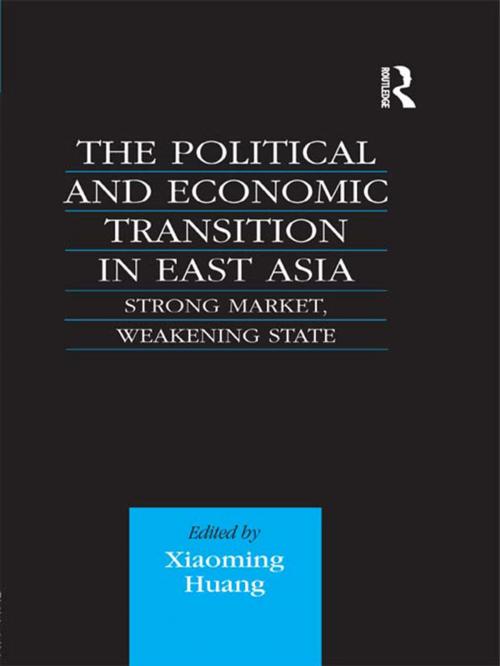The Political and Economic Transition in East Asia
Strong Market, Weakening State
Nonfiction, Social & Cultural Studies, Social Science, Cultural Studies, Ethnic Studies| Author: | Xiaoming Huang | ISBN: | 9781136114588 |
| Publisher: | Taylor and Francis | Publication: | September 5, 2013 |
| Imprint: | Routledge | Language: | English |
| Author: | Xiaoming Huang |
| ISBN: | 9781136114588 |
| Publisher: | Taylor and Francis |
| Publication: | September 5, 2013 |
| Imprint: | Routledge |
| Language: | English |
The book examines the political and economic developments in East Asia since the end of the Cold War in an attempt to identify a broad pattern of transition, particularly in terms of the reshaping of the state's relations with forces and institutions in economy, politics and domestic- international interactions. The chapters are organised into three parts: I: The state in the new economy; II: The state in the new politics; III: The state in the new global environment. The contributors find a general pattern of the state's withdrawal from these three areas. But it is not simply that the market takes over, as some envisaged. Instead, the transition is moving towards a set of governance-producing arrangements in which the role of both the market and the state are appreciated. The book concludes that a more sophisticated approach is needed to the problems of development vs. governance, the state vs. the market, and global dynamics vs. national interests, for a better understanding of the dynamic transition and the consequent new political economy in East Asia.
The book examines the political and economic developments in East Asia since the end of the Cold War in an attempt to identify a broad pattern of transition, particularly in terms of the reshaping of the state's relations with forces and institutions in economy, politics and domestic- international interactions. The chapters are organised into three parts: I: The state in the new economy; II: The state in the new politics; III: The state in the new global environment. The contributors find a general pattern of the state's withdrawal from these three areas. But it is not simply that the market takes over, as some envisaged. Instead, the transition is moving towards a set of governance-producing arrangements in which the role of both the market and the state are appreciated. The book concludes that a more sophisticated approach is needed to the problems of development vs. governance, the state vs. the market, and global dynamics vs. national interests, for a better understanding of the dynamic transition and the consequent new political economy in East Asia.















